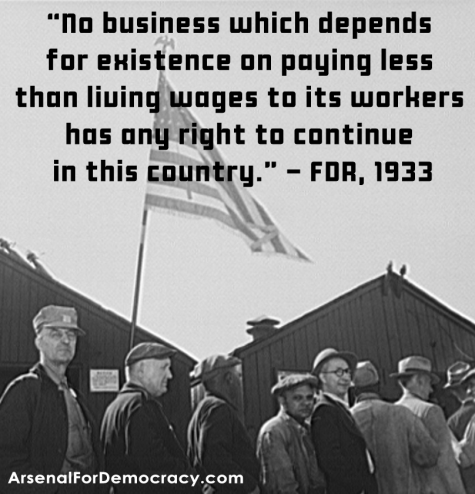The original Progressive Era, from the 1890s to the 1930s, wasn’t just about specific policies. It was partly about fundamentally altering the form of government. Activists amended the U.S. Constitution five times (including direct election of Senators and women’s suffrage), rewrote state constitutions, and passed countless laws that changed the way our local, state, and federal government systems functioned. The initiative and referendum, for example, was a major structural change at a time of highly unresponsive legislative government in many states.
Nearly every state today (with the exception of a few like Massachusetts) has a formal process to initiate a constitutional convention, but many of these states have not held major conventions since the Progressive Era. It is worth recalling that the conventions held nearly a century ago in many places (including Massachusetts) were integral in giving more people the vote, among other vital changes to the organization and forms of our democracy.
But perhaps as importantly, those constitutional conventions also gave those new voters more powerful ways to use that vote, in ways that could again change their structures of government and laws — but directly. Now, unfortunately, far too many citizens are regularly too discouraged to exercise that power (or aren’t even aware they can), leaving it to a minority of citizens.
In response to this disaffection, too many politicians simply say they want to “change politics.” More candidates should say they want to “change government” — literally. Change how it works. I agree that too many candidates make unrealistic promises to voters. But more candidates don’t even promise to try to shift what’s possible. We need our elected leaders not just to leave us better policies than when they entered office, but also better governments – structurally.
Even many modern progressive activists have narrowed their horizons, particularly after so many years of conservatives successfully dominating ballot initiatives on deeply conservative laws and constitutional provisions, from social issues to extreme limitations on taxation and spending. There are, however, so many huge systemic left-leaning changes we could undertake if we organized for hardheaded, serious constitutional reform in the states. After all, before the conservative revolution rolled them back, many of the Progressive Era state constitutions baked in social and economic guarantees often found in other countries today. The right to a living wage for example. Imagine the rights to housing, education, and environmental public safety we could be guaranteeing today, if we were working on major constitutional overhauls as a mass movement.
As long as we’re pushing “voter registration” as a big solution, we might as well let new people know they can vote for literal systems change. That’s a more exciting pitch for turnout than “register to vote and pin all of your hopes and dreams on one of two flawed humans trying their best!”
The U.S. Constitution also allows us to call for a constitutional convention to propose federal amendments for the states to consider. We’ve never used one. If two thirds of state legislatures petitioned Congress, it would authorize a national convention to submit amendments back to the states. Congress could also authorize both a national drafting convention and state ratifying conventions to accelerate debate and votes on proposals.
It is entirely within the power of an organized people in most states to call for state and national drafting conventions. We must be prepared to help organize not just amendment campaigns but actual constitutional conventions in our states (and possibly federally) if we are to have any hope of achieving a second progressive era with far-reaching social democratic gains and broad social inclusion for all the American people.







